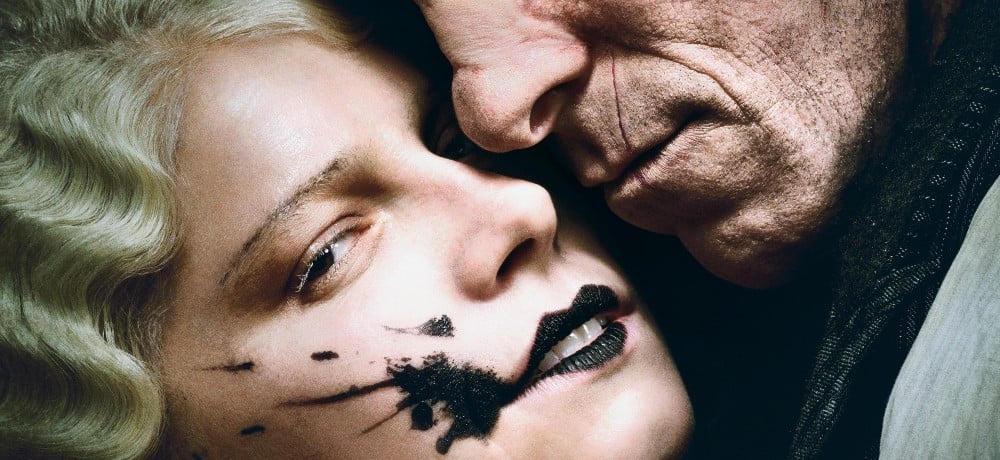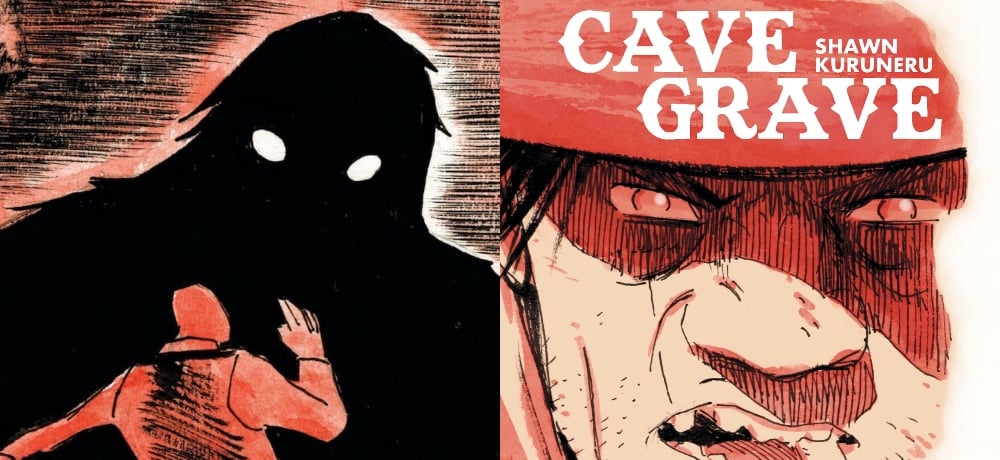





Writer and producer Sonny Mallhi has worked on several modern horror movies over the last few years, ensuring that other filmmakers’ terrifying visions were ultimately fulfilled. This weekend, Mallhi sees the theatrical and VOD release of his directorial debut, Anguish, which stars Ryan Simpkins as an embattled young woman possessed by the spirit of a restless spirit who still wants to remain amongst the living.
With an approach that feels a bit unconventional amongst its possession-themed peers, Daily Dead recently chatted with Mallhi about helming Anguish, the challenges of making a possession movie stand out in this day and age, working with the film’s young star, and his experiences heading back to his hometown of Lemont, Illinois to direct his first feature. Mallhi also briefly chatted about The Strangers 2 and the pressures that come with creating the sequel.
Look for Anguish in theaters and on VOD on December 18th, courtesy of Gravitas Ventures.
Great job on Anguish, Sonny. I liked how this didn’t feel like every other possession film lately. Was that the biggest challenge for you coming into this, that you had to find a way to present this idea in a completely different approach?
Sonny Mallhi: It was a big concern of mine. I found this story and it was a little bit easy because a lot of it was—I adopted some things and changed some things for the movie—but the heart of the story was this. What was interesting about it was that it was almost a spiritual or emotional revolution, and obviously having done a few horror movies, I know the genre—obviously there's always an exorcism in it and it's always religious and the easy part was actually the story. The hard part was getting a lot of pressure to change it, make it an exorcism, make it something that it wasn't. Staying true to the story, that was the harder part.
But that's what sparked me to it. Everyone has responded so well to the fact that it's unique in the genre and especially possession movies, but that's sort of the same thing that drew me to it. This is just a different way that most people don't even think about and that's what was interesting to me.
Ryan was astoundingly great in this and really was the anchor to everything. Everybody's really good, but Ryan was the glue keeping everything together in the film. How was it collaborating with her for Anguish?
Sonny Mallhi: She was fifteen when we were doing the movie. I knew if I was going to go the studio route where I was going to sell this, I would have needed to rely on a "name", but since we did this on our own, it was all about just finding the person who I think is really good for this role. I'm not going to worry about big names and Ryan has this innate quality too. Some could say the directing helped, but you can just see it with Ryan. She just has this almost indefinable quality to her acting.
I've produced a movie with Jennifer Lawrence, before she became huge, and you can just tell with some people. And that’s the same with Ryan. What was cool was that it's a very silent role, and she does so much without having to say hardly anything at all. It's just really good acting and it's just one of those things you don't teach. She just knows how to emote in a very simple way. It's an underrated aspect for really great actors—they don't have to necessarily always tell you how they feel and she's able to pull it off, she just has that quality.
It's her face, but it's also something inside of her, you want to care for her, you want to know about her just by looking at her. She was everything. Like you said, she was the anchor for it and that's a really hard role, that's a really hard role for a fifteen-year-old actor. You just get a sense as you're sitting there watching Ryan, where you're like, “She's going to be a movie star.”
I wanted to talk about the cinematography for a moment because it adds so much to this project. How was it working with your DP, Amanda [Treyz]?
Sonny Mallhi: Amanda could just read my mind, she was so great. I had actually met with some "bigger" DPs before her who I just didn't vibe with at all. But when I met with her, she immediately got what I wanted and then improved it. The coolest moments in the film came from her instincts with a camera.
Part of why the movie has that wonderful, small-town feeling to it comes from how Amanda was able to capture our locations with the camera. The work she does is so subtle, with these tiny movements that really keep things interesting. It was really fun working with her. She's just great and any crazy idea that I had, she's the type of person who was like, "Oh, we can figure this out." She was great and worked unbelievably hard.
Because this was your first time in the director's chair, was it nice to be able to go back to your hometown and do this movie within this—I don't want to say safety net—but you definitely had some familiarity with everyone and everything?
Sonny Mallhi: It did, completely. On the production side it helped, because I got a lot of people that helped me out and supported us throughout production. It also came in handy when it came to knowing locations because most of what you see in the film are ones I knew ahead of time. The swings, for example, are from my elementary school.
There were some difficulties, as Chicago has some other issues with production, but overall it was a great experience. I always wanted to do something here, so to get to make Anguish there meant a lot to me.
You were involved with The Strangers—which I love, by the way—and I know there’s been some recent talk about the status of The Strangers 2. From a producer’s standpoint, what’s the biggest challenge when you’re going in to make a movie like The Strangers 2? The first one kind of came out nowhere in terms of its success, and so I imagine after all these years, doing a sequel comes with a certain amount of pressure.
Sonny Mallhi: I know exactly what you mean. And I think Bryan (Bertino) has written a great second script. It's really cool. It has a lot of circumstances that aren’t so necessarily obvious when you think of the first film and yeah, it's just a great script. Part of it was trying to think about, "How do we capture those elements that made The Strangers work so well without just repeating those beats?" We still have to be able to hold the audience captive like we did with the first, so it’s going to be tough.
But the reason The Strangers became sort of this accidental standout was that it affected you on a personal level—the randomness of those acts. “Because you were home” and all that. There was no motive to what happened in that house, which means it could happen to anyone. That’s what is really scary; it makes it almost an emotional experience for viewers and that’s a really hard connection to make sometimes with horror. We’re going to try and see if we can figure it out once again with the sequel.